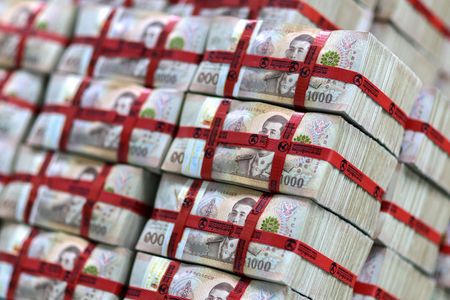SINGAPORE (Reuters) -China’s fuel demand is expected to trend higher in 2022 despite a recent COVID-19 surge, with the economy forecast to expand at a reasonable rate, a senior official of PetroChina said on Friday.
The comment came amid tough curbs on movement from early March in Chinese regions, such as the financial hub of Shanghai, that shut down industrial plants and dented demand for refined oil products.
“For the whole year of 2022, China’s economic growth will remain in a reasonable range, so we expect demand of refined oil products to stay higher than last year,” Wang Hua, a finance director of PetroChina, told a briefing.
That follows a similar forecast last month by Sinopec, Asia’s top refiner.
Officials of PetroChina, the listed arm of the country’s biggest oil and gas refiner, said the COVID measures led to higher product inventory versus the start of the year.
The company has sought to expand marketing, adjust refining capacity and utilisation ratio, and arrange exports to trim the stockpile, they added.
“With the improvement of the COVID situation, refined product inventory is now showing a downturn,” said Ren Lixin, vice president of PetroChina.
After first-quarter results last week, Chai Shouping, the secretary of the company’s board, told analysts and media the group had no plans to buy discounted oil and gas from Russia, as trade proceeding on the basis of earlier contracts.
Reuters reported that traders are deploying smaller, costlier vessels to ship displaced Russian oil from European ports to China, following a wide discount of Russian Urals against benchmark dated Brent.
Chai also expected PetroChina’s prices for domestic sales of natural gas in 2022 to exceed those of 2021, to offset expected losses in imported business as global gas prices surge.
PetroChina’s first-quarter profit from gas imports stood at 3.47 billion yuan ($519.44 million), as it brought in 21.2 billion cubic metres of natural gas, but it expects a significant increase of import costs in coming quarters.
($1=6.6803 Chinese yuan renminbi)
(Reporting by Chen Aizhu in Singapore and Muyu Xu in Beijing; Editing by Jane Merriman and Clarence Fernandez)










